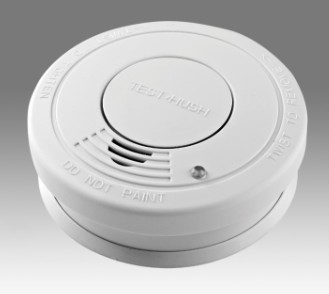In the age of smart home technology, the relevance of c […]
In the age of smart home technology, the relevance of classic smoke alarms is a pertinent question for homeowners prioritizing fire safety. Classic smoke alarms, with their long-standing history and straightforward functionality, have been integral in providing early warnings of potential fire hazards. The emergence of smart home innovations introduces advanced features and connectivity options that raise the question of whether classic smoke alarms remain relevant in today's technology-driven landscape.
Classic smoke alarms, characterized by simplicity and reliability, have proven their effectiveness over the years. These devices typically operate independently, utilizing ionization or photoelectric sensors to detect smoke and emit a loud audible alert. The autonomous nature of classic smoke alarms ensures a swift response to smoke, a critical factor in early fire detection. Their cost-effectiveness and ease of installation have contributed to their widespread adoption, making them a staple in residential properties globally.
 While classic smoke alarms continue to serve as reliable standalone devices, smart smoke alarms have entered the scene with features that capitalize on connectivity and remote monitoring capabilities. Smart smoke alarms offer the advantage of integration with broader smart home ecosystems, allowing users to receive real-time alerts on their smartphones or other connected devices. This connectivity enables remote monitoring, offering homeowners peace of mind and the ability to respond promptly to potential fire threats, even when away from home.
While classic smoke alarms continue to serve as reliable standalone devices, smart smoke alarms have entered the scene with features that capitalize on connectivity and remote monitoring capabilities. Smart smoke alarms offer the advantage of integration with broader smart home ecosystems, allowing users to receive real-time alerts on their smartphones or other connected devices. This connectivity enables remote monitoring, offering homeowners peace of mind and the ability to respond promptly to potential fire threats, even when away from home.
Cost considerations play a role in evaluating the relevance of classic smoke alarms. Traditional smoke alarms are generally more affordable than their smart counterparts, making them an accessible option for homeowners on a budget. The low maintenance requirements of classic smoke alarms, typically involving periodic testing and battery replacement, contribute to their cost-effectiveness.
However, the advantages of smart smoke alarms extend beyond mere connectivity. Remote monitoring capabilities ensure that homeowners receive immediate alerts, providing an extra layer of awareness and facilitating swift action. Additionally, smart smoke alarms can seamlessly integrate with other smart home devices, creating a cohesive and interconnected safety network. This integration allows for automated responses, such as triggering lighting systems or unlocking doors in the event of a fire, enhancing overall safety measures.
Smart smoke alarms also provide more detailed alerts, offering information on the location and type of detected hazard. This level of insight can be crucial for emergency responders and homeowners seeking to assess the severity of the situation. The ability of smart smoke alarms to offer valuable data enhances their role in comprehensive home safety.